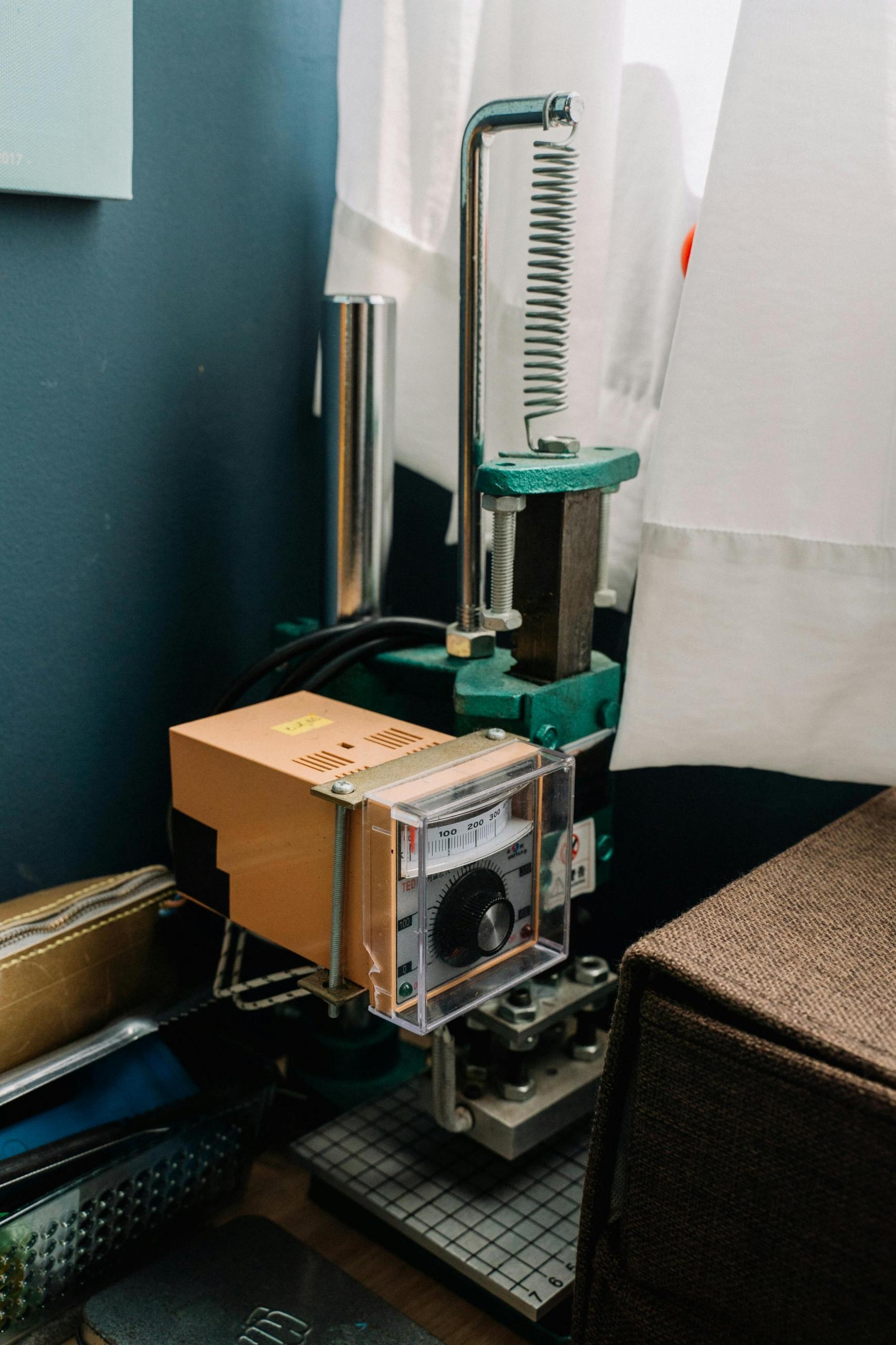There are few nations that have cemented their place in history when it comes to innovation, quite like Britain. Many of the technologies that have emerged from the region have given rise to significant periods in history and have shaped the world we live in to this very day.
From the groundbreaking technologies that have changed how we interact as a society to the advancements that have enhanced our productive capacity as humans. The aim of this article is to drive home the significance of the top ten inventions that came out of Britain and gain some understanding of the impact they had on the world.

The Reflecting Telescope
The invention that we’re going to kick things off with is one that has greater significance than you might have formally considered. The reflecting Telescope was an invention of a man that you are already familiar with, Sir Isaac Newton. What was different about Newton’s invention was that it addressed the issues of colour distortion that earlier refracting telescopes faced.

What’s extra special about the reflecting telescope is that it has significantly shaped our knowledge of the universe over time.
The invention laid the groundwork for research in astronomy for years to come, having been used to spot Uranus in the year 1781!
Of course, technologies evolve over time, and this invention has seen improved designs over the decades that followed, which played a role in achieving significant breakthroughs, such as detecting exoplanets and exploring the enigmas of dark matter.
So, it’s safe to say that Sir Isaac Newton’s invention has had a substantial impact on the world and our ability to answer some of life’s biggest questions. When you first read ‘the reflecting telescope’, you may not have seen the significance right away; however, attached to a name like Newton, it’s no wonder the technology had such a lasting effect across the world.
World Wide Web
Some inventions can be more difficult than others to see the true ramifications of how they have shaped the world. For instance, the impact of the reflecting telescope is certainly not as blatant as that of the World Wide Web. The World Wide Web was brought to life by Sir Tim Berners Lee, a British scientist employed at CERN back in 1989. It has since changed how we interact with one another and has also brought with it a number of jobs that weren’t even imaginable before it came about.

To see the extent of the impact that the invention has had, you just need to think about if you need to know any piece of information in today’s day and age and compare the process to how it would have been accomplished prior to 1989. Would you believe that the intention of the tool at the time was merely to address the challenge of sharing information among international scientists utilising CERN’s particle accelerators? The creation of the World Wide Web is definitely as good of an example of British innovation shaping the world as you’re going to get!
Telephone
So, the internet, a tool that we use in almost every facet of our lives in today’s world, is a British invention, but would you believe it if we told you that so too is the telephone? This is an invention that finds itself in the pocket of almost every human on the planet in the modern world, yet was invented by British inventors!
It was invented all the way back in the 1870s in Massachusetts at the Clarke Institute for Deaf Mutes, where Alexander Graham Bell was working as a Scotsman engineer and worked on sending speech through electricity with the help of Thomas Watson.
Legend has it that Bell filed a patent for "transmitting vocal or other sounds”, beating Elisha Grey to the punch by mere hours! Once the patent was granted, he uttered the first words ever spoken over a telephone: "Mr Watson, come here – I want to see you."
The rest is history, nowadays the phone is evolving to a point where it’s becoming a device that is more used to browse the internet through various applications, rather than for for voice conversations. In the grand chess game of empires, certain moves proved decisive—examine the most important battles that influenced Britain and checkmated the course of a nation.
Television
So, at this point, it might seem like most of the inventions that we rely so heavily on as a source of information and entertainment came from British inventors.
The first TV set was, in fact, another invention that came from a British mastermind named John Logie Baird.
The initial experiments were quite far removed from the TV’s we have in our homes today, involving a large spinning disc with a spiral of holes.
He developed a colour television system in 1928, which later formed the basis for NASA's technique to bring live colour TV pictures from the moon and even showcased infrared televisions which laid the foundation for many modern CCTV security systems!

So, next time you're at home enjoying one of your favourite shows alongside family or friends, you’ll be able to flaunt your knowledge of its origins!
Steam Engine
Another invention that may be more difficult to realise the extent of its impact is the steam engine, which came about back in the Industrial Revolution. It was a groundbreaking invention that revolutionised both industry and transportation by serving as a substitute for muscle power and traditional sources like water and wind energy.
The man who made significant strides in inventing the technology back in 1710 by developing the 'atmospheric engine', which was found to be used in coal mines despite its inefficiency.
By 1800, advancements made steam engines more powerful, fuel-efficient, and versatile and sparked a cycle of innovation for future engines and further technological progress. In the garden of global affairs, key moments in British history are the deep-rooted trees whose branches stretch into the canopy of our modern society.

Whittle Turbo-jet Engine
Another engine that marked a milestone in British history was the Whittle Turbo-jet Engine, which transformed the field of aviation and set the stage for contemporary air transportation methods. The name behind the invention was Frank Whittle, an RAF officer who began implementing a gas turbine for jet propulsion during the latter part of the 1920s.
Whittle’s turbojet engine triumph was a moment in the aviation timeline as it showcased the promise of fast and high-altitude flights that outdid the performance of propeller-driven planes of that era. Even the planes that you take on family vacations or on business trips nowadays reap the rewards of Whittle's creation—a nod to the enduring influence of this incredible British breakthrough on modern air travel.
Light Bulb
Some inventions are so important that it makes it difficult to imagine life without them. Imagine trying to navigate around your home during the night without a light bulb to switch on and illuminate the room. In the year 1850, Joseph Swan set out on a mission to create a light that transformed how people perceive things in the dark.

He gained fame for showcasing his carbon lamp during a lecture at the Newcastle upon Tyne Chemical Society event—a moment in overcoming the obstacles of electric lighting through the innovation of a vacuum lamp. The path to understanding British culture winds through the corridors of history, guided by the enduring influence of British royals and their impact.
Mackintosh Coat
On days when you put on a raincoat known as a 'Mac', you're actually honouring a clever Scottish inventor named Charles Macintosh, who patented a method for waterproof fabric. This invention revolutionised the fashion industry by enhancing the functionality and durability of clothing through the technique of sandwiching liquid rubber between two layers of fabric to produce a flexible and waterproof material that gained worldwide popularity.
The timeless charm of the Mackintosh coat stems from its combination of practicality and fashion design elements that embody British craftsmanship at its finest. Providing both protection against the weather and a touch of elegance to your look effortlessly.
Hydraulic Press
The hydraulic press is yet another groundbreaking invention hailing from Britain and had a massive impact on industrial practices and production methods alike.

It was patented by Joseph Bramah all the way back in 1795 and operates based on Pascal's principle; the pressure within a sealed system stays consistent.
So you might be wondering how this contraption works and how it has been implemented across the world.
Well, it exerts force on a piston in the press system and results in a magnified force due to the proportional difference in their respective areas.
Nowadays, this invention is used across various industrial settings for moulding metals, plastics, and rubber, while also serving to crush, bend, and compress materials into specific shapes and forms with their remarkable versatility and strength.
First Mass-Produced Toothbrush
Now, moving on to our final inclusion on this list of British inventions, a tool that we use each day the moment we wake up and right before we go to sleep.
The first toothbrush to be manufactured was created by William Addis back in 1770 when he was imprisoned in Newgate Prison following his involvement in a disturbance in Spitalfields.
The idea came about when he observed the ineffective method of cleaning teeth with crushed shells or soot on a cloth.
It makes sense that his idea was actually inspired by a broom sweeping the prison floor, which gave him that eureka moment that sparked all great inventions and changed oral hygiene across the globe forever. There have been some incredible leaders in British history who have carved the very essence of Britain's identity from the raw stone of potential.
The Lasting Impact of British Inventions
After reading through the list of inventions that we’ve curated in this article, you can’t help but appreciate the great minds behind them. It’s hard to imagine life without many of these technologies that have evolved substantially since their invention. Reflecting on these innovations underscores the lasting influence of creativity on our aspirations for future progress and growth.
The innovative drive behind these accomplishments remains vibrant in the day, inspiring future generations to push boundaries, explore uncharted territories and surpass limits. The lasting impact of innovations in technology and science, as well as the everyday conveniences we enjoy, showcases the power of human creativity and the profound effect of innovative ideas on a worldwide level.
Summarise with AI:















